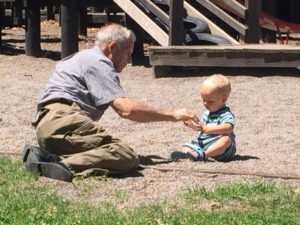
Parenting the fragile child:
Often stated as the hardest job you’ll ever love. Parenting is difficult because it is the start of a new project with every child. Every child has a different genetic hardware, therefore, every child responds differently. Because your biological children tend to respond similarly to you or someone in your family, you understand what interactions bring about the responses that are desired. Children not related to us are often more difficult for us to read. It is overwhelming to understand where to start to meet their needs …………..thus the challenge grows.
Trauma and Brain Chemistry
The brain is a powerful machine or at least a part of the human machine. Trauma decreases brain chemicals which impairs the cells ability to talk to each other. It is because of this lack of communication in the brain that these children often have behavioral and school problems. The brain controls the body and all of its parts, therefore, the brain impacted by trauma profoundly impacts every aspect of childhood. Children affected by trauma often struggle socially, emotionally, intellectually and behaviorally.
Trauma or negative interactions
Negative brain exposures vary in their causes. Trauma in childhood is not always what we would call abuse. Sometimes loving and caring people can cause trauma. Medical persons are not considered abusive, although, premature babies and sick children are often traumatized in an effort to preserve their life. Unfortunately, necessary trauma and abuse both have the same basic impact.  Much like the trip down this waterfall, a child who has experienced trauma has a guarded attitude. They are always aware that the next bump or slide may cause a cut or gouge. It may send them head over heels plummeting toward a drop into deep overwhelming water.
Much like the trip down this waterfall, a child who has experienced trauma has a guarded attitude. They are always aware that the next bump or slide may cause a cut or gouge. It may send them head over heels plummeting toward a drop into deep overwhelming water.
Love: The Great Equalizer
Love and Positive experiences help normalize adverse childhood events. Negative interactions decrease the amount and effectiveness of brain chemicals, however, positive interactions tip the scale and provide a boost in brain chemicals. A loving and nurturing home for a child who has endured trauma can improve outcomes. In conclusion, trauma will inevitably leave scars, it is encouraging to know that we have it within our grasp to improve outcomes. By simply limiting additional trauma and providing love and stability we can reverse the effects of trauma.